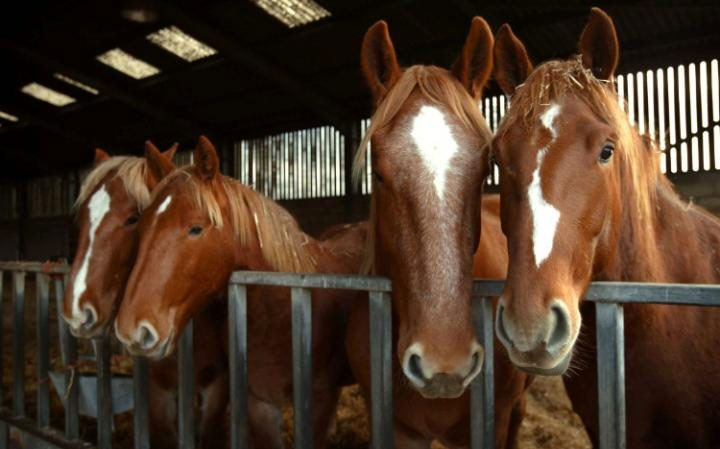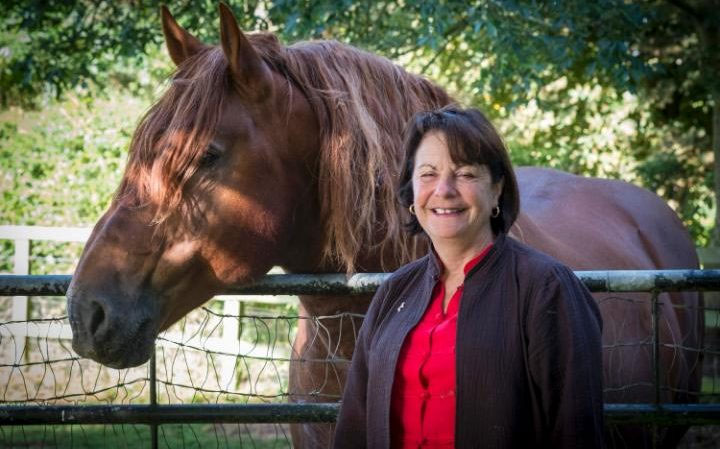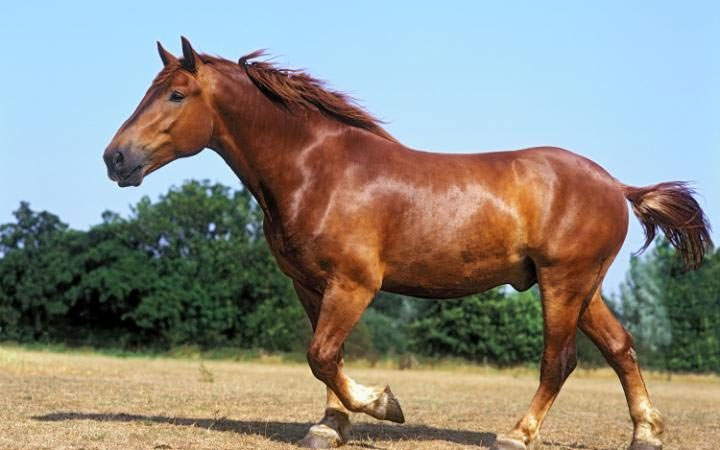
by Patrick Sawer, Senior Reporter, Telegraph UK
Photo Credit: Justin Sutcliffe, Rare Suffolk Punch horses at the Hollesly Open Prison Stud Farm
For centuries they ploughed the fields of England, shaping much of the landscape of East Anglia, before being harnessed for battle during the First World War.
Yet the Suffolk Punch horse - Britain's oldest native breed - is now critically endangered, its numbers in sharp decline a victim of the rapid mechanisation of agriculture.
The plight of the breed – deemed to be rarer than the giant panda or even the Siberian tiger – has moved one landowner to appeal for an organised campaign to save them from oblivion.
If we lost the Suffolk Punch we couldn’t really say we are a nation of animal lovers.
Clare, Countess of Euston, whose estate in Suffolk was once worked by Suffolk Punch horses, said Britain should feel ashamed of itself if it stood by and did nothing to save the breed.
“If we lost the Suffolk Punch I think it would mean we couldn’t really say we are a nation of animal lovers. They are the most magnificent and beautiful of the breeds,” she said.
There are now just 300 Suffolk Punch horses left in the UK, threatening the health and viability of the breed which once formed the backbone of rural life.
Standing sixteen hands high and weighing over a tonne, yet graceful at full gallop, the Suffolk Punch has been described as having “the face of an angel and the backside of a farmer’s daughter”.
Thousands died during World War One, when they were used to haul heavy artillery to the front lines.

Their numbers recovered during the 1920s and 1930s, when they were once again used as farm horse, but the introduction of tractors saw they numbers decline dramatically.
Clare, Countess of Euston, said the Suffolk Punch should hold a special place in the British public’s affections.
“It’s the oldest of our native heavy horses. They were bred for farming but we have to find a new role for them in modern life,” she said. “We get hopelessly romantic about tigers and other critically endangered species, but sometimes we need to look closer to home.”
She has called for a proper breeding programme to save the Suffolk Punch to be funded by scientific bodies and conservation groups.
“I’d like to see a national summit held to come up with a proper plan of action. And where there’s a plan funding will follow,” said Lady Euston.
As part of her campaign the Countess, who was appointed Suffolk’s first-ever female Lord Lieutenant in 2014,has written an essay on the plight of the breed to accompany a new book of photographs of horses by Derry Moore.

In it she writes: “They were the mainstay of the Agricultural Revolution in the eighteenth and nineteenth centuries in Britain, and in all corners of the Globe to which they were exported. They were sent as far afield as Pakistan, South Africa, North America and Australia.
“Today they are used for all driven work, ploughing and forestry, and as ridden horses are calm and biddable. Help is urgently needed to save them from oblivion. The world cannot afford to lose this uniquely beautiful and remarkable horse.”
The breed can trace its ancestry back to the great warhorses of the Middle Ages, although its modern variant traces back to a stallion foaled near Woodbridge in 1768, owned by Thomas Crisp of Ufford and simply known as ‘Crisp’s horse’.
While its numbers have recovered in recent years, both the Rare Breeds Survival Trust in the UK and the American Livestock Breeds Conservancy consider the status of the Suffolk Punch to be critical and it is considered the rarest horse breed in Britain, with just 30 to 40 pure bred foals born each year.

































